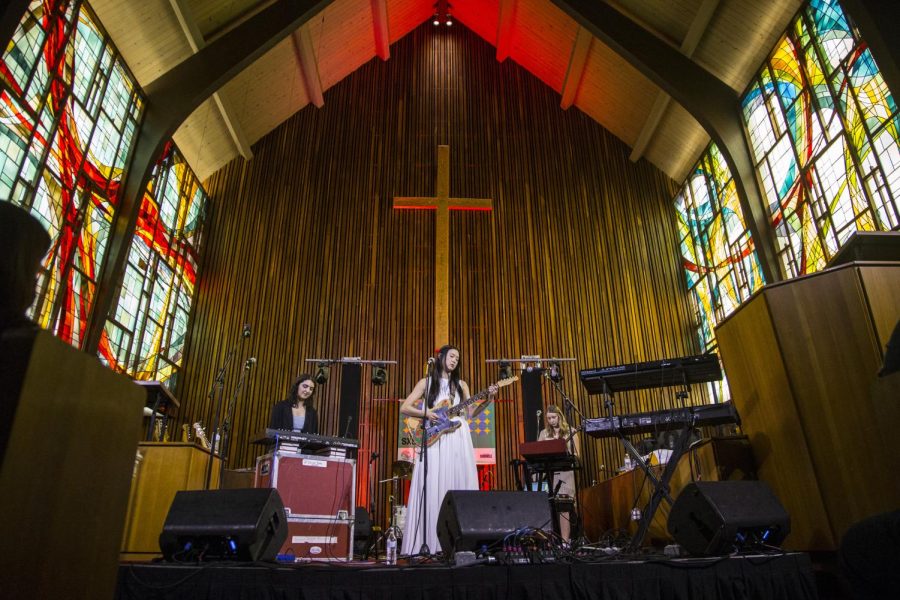Sarah Kinsley shares artistic visions, confessional messages in EP The King
March 20, 2022
Inspired by the old cassettes, classical pieces and pop radio songs she listened to growing up, Sarah Kinsley took her time falling in love with music. The artist delivers an outpouring of soul-stirring experiences in her second EP The King.
The Daily Texan met with Kinsley at SXSW to talk about the concepts and passion that drive her album as a self-produced singer-songwriter.
The Daily Texan: While you’re a classically trained pianist who’s studied music theory, you also feel a deep emotional connection to music. How do you incorporate both this realism and idealism into your songs?
Sarah Kinsley: I always think of (music theory) as the academic side of it, which is the realist and “pure” way of solidifying music and saying, “This (is the) pitch, note, keys and scales.” (It’s) just a perspective of digesting music. … It’s like the whole chicken and egg thing. Which one comes first? I don’t think theory ever comes first. I don’t think theory is a way of explaining why you find something beautiful. It’s just a system that’s been codified through Western music. The core between (realism and idealism) is the experience of music. They’re both trying to portray what it actually is — and they’re both correct — but I hope I’m being more of an idealist, because being so particular about music can be limiting.
DT: The melodies and harmonies in The King are so round-sounding. What are some details in this final track that helped express your ode to one’s youth?
SK: At the end of the song, there’s this repetitive, soft singing in the background (that) gets bigger and bigger into the last chorus. That idea of roundness is such a tangible factor. (The King) was based on letters I had written to myself in the future and past. It’s a weird collection of trying to conserve time in this moment. … The circularness of the piano going (in) triplets does not stop — it’s constantly chugging like a motor throughout the song. I’m really happy you’re also feeling it, (and) it’s not just me projecting it into the music.
DT: What messages did you want to get across in your EP overall?
SK: I envisioned (the EP) as this perfect hourglass of songs about external things I see and experience coming closer and closer to me, almost being unbearably close and then expanding again. I wanted people to take away the same experience I had making it … (My music) is the embrace of things that are uncomfortable and (said) in silence… I still don’t have a message, but I like that I can’t boil it down into adjectives. It’s this amalgamation of things I will never be able to put my finger on.
DT: For many young creatives, it can be daunting to share their work with others. How did you overcome this and develop the courage to release music for the world to hear?
SK: That constant pressure to be vulnerable is daunting, but it will be daunting regardless. People truly love their music when it’s divine and feels like you are accessing another way of life. … (That) will always overpower whatever small fear (you have) about how people perceive it. Also, it’s so subjective. Everything we’ve gone through in life has served us to hear things a certain way.
DT: What’s the most rewarding part about being a self-producing artist in this industry?
SK: Seeing my damn credit and being able to say, “I did this, I wrote this myself.” It’s not having possession of something. I used the knowledge I have and things I’ve been lucky enough to have access to to express myself. It’s rare that we do that in art. That feeling is greater than anything else.












